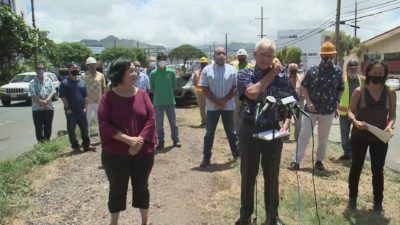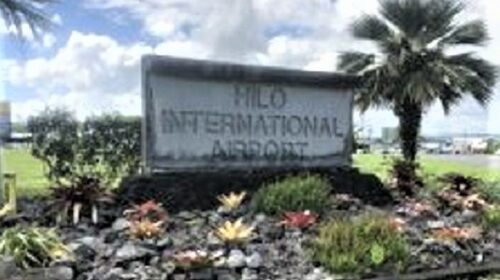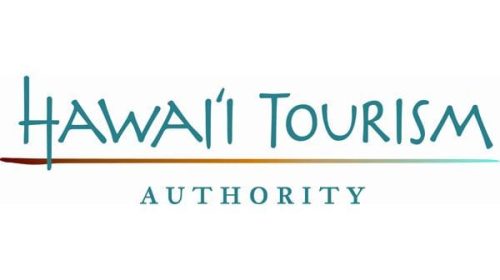Completion of Trunk Sewer Project Not Glamorous
Honolulu Mayor Kirk Caldwell celebrated the City’s completion of Phase 1 of the Waiakamilo Road Trunk Sewer Project today. With the completion of this phase, the City has only to complete Phase 2 before it will be finished with the collection system portion of the 2010 Consent Decree.
“This milestone is a testament to the staff of the Department of Environmental Services, along with the thousands of people working at both the city and in the private sector that helped make this a reality.” Mayor Caldwell said. “The work behind this consent decree isn’t glamorous, but it is going to affect the lives of everyone who lives on this island for many years to come.”
The Phase 2 portion of the Awa Street Wastewater Pump Station Force Main and Sewer System Improvements – Waiakamilo Road Trunk Sewer project is slated to be completed in August 2021. The project encountered numerous unforeseen circumstances including two bid protests and undocumented utilities conflicts. The city petitioned the EPA for a time extension because of the extenuating circumstances, and the agency granted the city until Aug. 31, 2021 to complete the project.
The collection system consists of approximately 2,100 miles of pipes, 72 wastewater pump stations and associated force mains. The city transports and treats more than 110 million gallons (MGD) of wastewater daily.
In 2010, the city estimated that it would spend $3.4 billion in capital costs through fiscal year 2020. A large portion of these costs were to be spent on the collection system with much of this work already required or planned before entering the 2010 Consent Decree. A portion of this amount was for initial costs for treatment plant upgrades at Honouliuli and Sand Island wastewater treatment plants (WWTP).
“During the past 10 years, I have been fortunate to work both in the operational division and as an administrator for ENV and am so proud of our ENV ohana with the dedication, professionalism and excellence they’ve demonstrated,” ENV Director Lori Kahikina said. “I also commend the many private sector companies who worked on many of these projects during this major accomplishment. We could not have accomplished all of this without the support of our sister city and state agencies, utilities, regulators and of course the community.”
The Consent Decree was filed in federal court Dec. 17, 2010. It halted years of legal action including a Sierra Club lawsuit, the 2007 Beachwalk lawsuit, and resolved litigation over secondary treatment waivers, along with EPA and state of Hawaii Department of Health (DOH) compliance orders.
In March 2012, the city received federal court approval for the First Amendment to the Consent Decree. The new language deleted a back-up force main project from Kaneohe Pretreatment Facility to Kailua Regional WWTP that would have went through Kaneohe Bay. Instead, the city’s proposed modification constructed the 3-mile Kaneohe-Kailua Wastewater Conveyance Tunnel and associated influent pump station. The 10-foot gravity tunnel, aligned under Oneawa Hills, also eliminated storage projects from the original Consent Decree. The K-K Tunnel was completed in June 2018
In 2010, the 25-year implementation schedule was unprecedented and the longest timeframe allowed by EPA.
The final two large phases of the Consent Decree are upgrading both Honouliuli and Sand Island WWTPs to full secondary treatment.
Currently, Honouliuli WWTP is a half primary, half secondary plant. Major construction is underway at the facility to transform the process into full secondary treatment. The upgrade to full secondary treatment is to be completed by June 1, 2024.
The Sand Island WWTP is a primary-plus plant utilizing ultraviolent disinfection before discharging the effluent through the ocean outfall. Sand Island WWTP will incorporate a 20 MGD membrane bioreactor (MBR). The design of the MBR project is 60 percent complete. The plant must be upgraded to full secondary treatment by Dec. 31, 2035. If the City can demonstrate that the date is not technically feasible, or would impose undue financial hardship, the deadline may be extended to Dec. 31, 2038.
While the Honolulu ratepayers bear the burden of funding the Consent Decree mandated projects, the city continues to use optimum funding opportunities to save money and resources. The city will continue to work with regulators to ensure residents receive strong value and a clean environment for decades.




